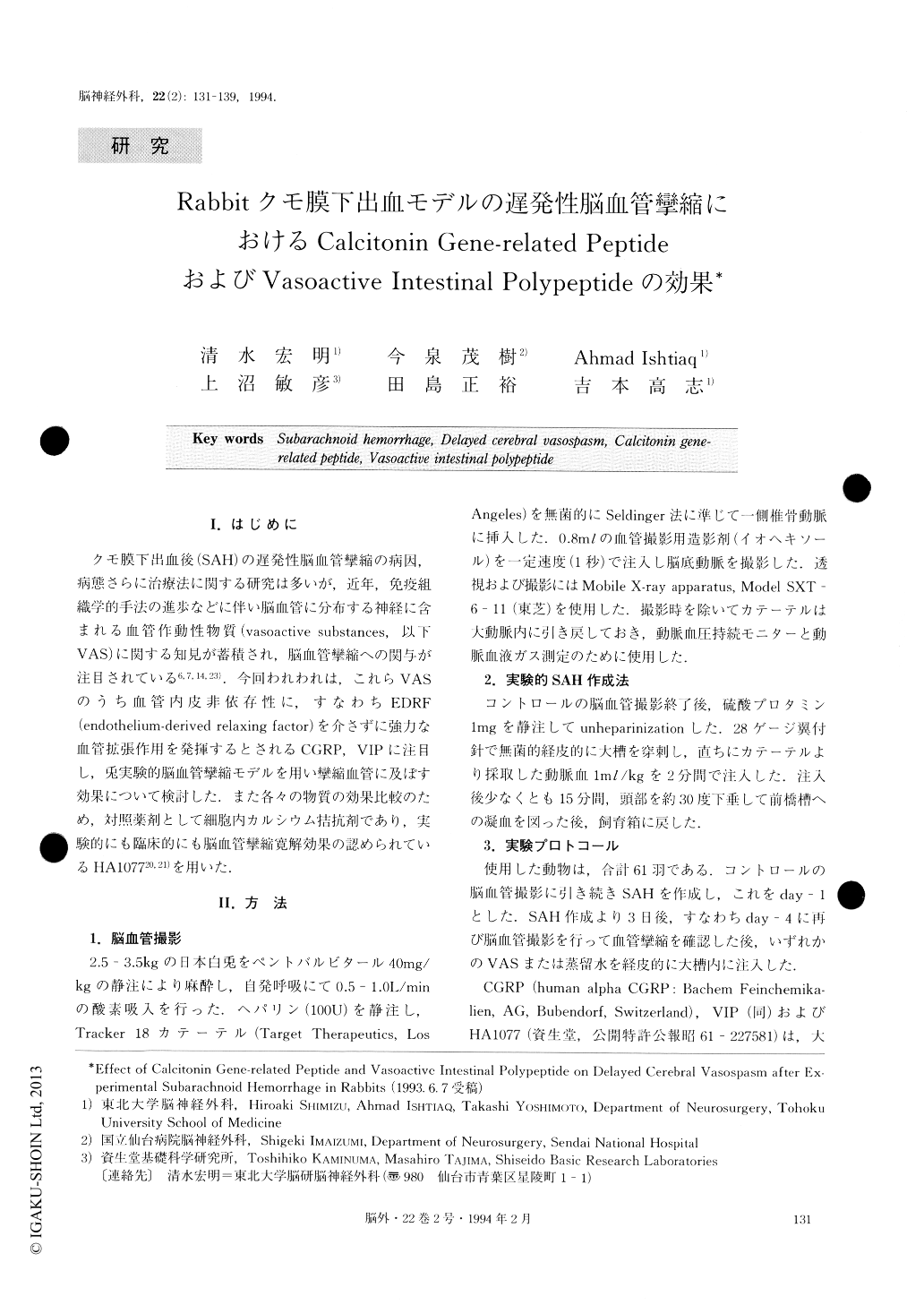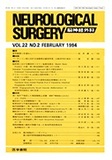Japanese
English
- 有料閲覧
- Abstract 文献概要
- 1ページ目 Look Inside
I.はじめに
クモ膜下出血後(SAH)の遅発性脳血管攣縮の病因,病態さらに治療法に関する研究は多いが,近年,免疫組織学的手法の進歩などに伴い脳血管に分布する神経に含まれる血管作動性物質(vasoactive substances,以下VAS)に関する知見が蓄積され,脳血管攣縮への関与が注目されている6,7,14,23).今回われわれは,これらVASのうち血管内皮非依存性に,すなわちEDRF(endothelium-derived relaxing factor)を介さずに強力な血管拡張作用を発揮するとされるCGRP,VIPに注目し,兎実験的脳血管攣縮モデルを用い攣縮血管に及ぼす効果について検討した.また各々の物質の効果比較のため,対照薬剤として細胞内カルシウム拮抗剤であり,実験的にも臨床的にも脳血管攣縮寛解効果の認められているHA107720,21)を用いた.
Calcitonin gene-related peptide (CGRP) and vasoac-tive intestinal polypeptide (VIP) are intrinsic vasodila-tory substances contained in perivascular nerve fibers innervating large intracranial arteries. Effects of these substances on delayed cerebral vasospasm were ex-amined using a rabbit model of experimental subarach-noid hemorrhage (SAH). Sixty-one anesthetized rabbits received intrathecal fresh arterial blood on day-1 andintrathecal administration of different doses of CGRP, VIP or distilled water on day-4. Prior to the treatment, caliber of the spastic basilar artery was 73.4±0.9% of pre-SAH values. Serial angiograms after treatment de-monstrated that 10-10mol/kg of CGRP dilated the spas-tic artery to 117.1% of pre-SAH levels and that dilatory effect of CGRP continued up to 6 hours after treat-ment. VIP injection also brought arterial dilatation up to 114.9% of pre-SAH levels, although the duration of the effect was less than 3 hours. Intrathecal admini-stration of CGRP or VIP showed no adverse effect on the systemic and neurological state of the animals. These results indicate that intrathecal CGRP and VIP have therapeutic potential in treating delayed cerebral vasospasm after subarachnoid hemorrhage. Further in-vestigations are expected to extend the effect of CGRP and VIP.

Copyright © 1994, Igaku-Shoin Ltd. All rights reserved.


